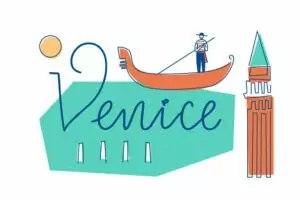Immersing oneself in the richness of Italian culture and language necessitates familiarity with the Italian names of months, or i mesi.

✅ AI Essay Writer ✅ AI Detector ✅ Plagchecker ✅ Paraphraser
✅ Summarizer ✅ Citation Generator
An Introduction to Italian Months
Let’s take a look at how to say months in Italian and how to use these words in real speech:
- Gennaio (January)
- Febbraio (February)
- Marzo (March)
- Aprile (April)
- Maggio (May)
- Giugno (June)
- Luglio (July)
- Agosto (August)
- Settembre (September)
- Ottobre (October)
- Novembre (November)
- Dicembre (December)
For example, the Italian word for January, Gennaio, pronounced as [jen-‘na-yo], can be used in a sentence like “Il mio compleanno è a Gennaio” (My birthday is in January). Or, for December, or Dicembre (pronounced [di-‘chem-bre]), you could say “Natale cade a Dicembre” (Christmas falls in December).
Examples
Gennaio: “Il mio compleanno è in Gennaio.” (My birthday is in January.)
Febbraio: “San Valentino cade a Febbraio.” (Valentine’s Day falls in February.)
Marzo: “In Marzo inizia la primavera.” (Spring begins in March.)
Aprile: “Ad Aprile le giornate si allungano.” (In April, the days get longer.)
Maggio: “A Maggio ci sono molte fioriture.” (In May, there are many flowers blooming.)
Giugno: “Giugno è il primo mese dell’estate.” (June is the first month of summer.)
Luglio: “Vado in vacanza a Luglio.” (I go on holiday in July.)
Agosto: “Agosto è il mese più caldo dell’anno.” (August is the hottest month of the year.)
Settembre: “I bambini tornano a scuola a Settembre.” (Children go back to school in September.)
Ottobre: “Ottobre è il mese delle foglie cadute.” (October is the month of fallen leaves.)
Novembre: “A Novembre celebriamo il giorno dei morti.” (In November, we celebrate All Souls’ Day.)
Dicembre: “Dicembre è il mese del Natale.” (December is the month of Christmas.)
Seasons in Italian: Le Stagioni
The four seasons in Italian, or le stagioni, are:
- Primavera (Spring)
- Estate (Summer)
- Autunno (Fall/Autumn)
- Inverno (Winter)
To perfect the pronunciation and usage of these terms, practice them in sentences. For example, Primavera (Spring), pronounced as [pri-ma-‘ve-ra], can be used in a sentence like “La Primavera è la mia stagione preferita, perché tutto fiorisce” (Spring is my favorite season, because everything blooms). Similarly, Inverno (Winter), pronounced as [in-‘ver-no], can be used as “L’Inverno in Italia può essere molto freddo, soprattutto nelle regioni settentrionali” (Winter in Italy can be very cold, especially in the northern regions).
Examples
Primavera: “Amo i colori della Primavera.” (I love the colors of Spring.)
Estate: “Preferisco la spiaggia durante l’Estate.” (I prefer the beach during the Summer.)
Autunno: “Le foglie cambiano colore in Autunno.” (Leaves change color in Autumn.)
Inverno: “In Inverno fa freddo.” (It’s cold in Winter.)
The Italian Weekdays
Mastering the Italian weekdays, or i giorni della settimana, can greatly help in your daily communication:
- Lunedì (Monday)
- Martedì (Tuesday)
- Mercoledì (Wednesday)
- Giovedì (Thursday)
- Venerdì (Friday)
- Sabato (Saturday)
- Domenica (Sunday)
For instance, Lunedì, pronounced as [lu-‘ne-di], stands for Monday. You can use it in a sentence such as “Ogni Lunedì vado in palestra” (Every Monday, I go to the gym). Likewise, Domenica ([do-‘me-ni-ca]), which means Sunday, can be used like, “La Domenica mi piace rilassarmi a casa” (On Sunday, I like to relax at home).
Examples
Lunedì: “Il Lunedì è il primo giorno della settimana lavorativa.” (Monday is the first day of the working week.)
Martedì: “Vado a nuoto ogni Martedì.” (I go swimming every Tuesday.)
Mercoledì: “Mercoledì sera vado al corso di italiano.” (On Wednesday evening, I go to the Italian course.)
Giovedì: “Il Giovedì sera mi piace guardare un film.” (I like to watch a movie on Thursday evening.)
Venerdì: “Venerdì è il mio giorno preferito della settimana.” (Friday is my favorite day of the week.)
Sabato: “Sabato mattina mi piace dormire fino a tardi.” (I like to sleep late on Saturday morning.)
Domenica: “La Domenica vado a trovare i miei nonni.” (On Sunday, I visit my grandparents.)
Immerse yourself in the rhythm of the Italian language by learning these terms, and soon enough, you’ll find yourself navigating the Italian calendar with ease and confidence. Buona fortuna (good luck)!
You can find more Language Learning Guides in our designated category here at A*Help!
FAQ
Follow us on Reddit for more insights and updates.





Comments (0)
Welcome to A*Help comments!
We’re all about debate and discussion at A*Help.
We value the diverse opinions of users, so you may find points of view that you don’t agree with. And that’s cool. However, there are certain things we’re not OK with: attempts to manipulate our data in any way, for example, or the posting of discriminative, offensive, hateful, or disparaging material.